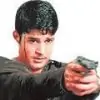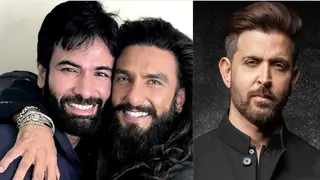V. Balsara (A whole-hearted musician)
by Debtaru De
His PIANO, UNIVOX and MELODICA, the instruments he loved, be it for composing music for films or otherwise, have come to personify the legend of Vistas Ardeshir Balsara (V. Balsara), the instrumentalist.
V. Balsara made an interesting comment, "Life is short but art and for that matter music is permanent. There is no death of a true art and so is it with music."
He says, "If I am asked to pray for one thing, I would only utter 'Give me strength to live a life full of rhythm and beauty and lead a life of dreams that never die."
His music, according to many stalwarts, will remain a treasure trove for future generations. He began his music career at the age of four.
Balsara who was greatly influenced by western music learnt to play the piano from Hildafield, a German musician.
His knowledge of the piano made him use it to play Indian classical music also with ease.
He mastered the technique of using the instrument for playing Indian classical music from Muneswar Dayal of Gaya.
He was equally at ease with string and wind instruments.
Born in June 1922, Balsara learnt music from his mother Nazamaye, and gave his first solo performance at the age of six with the pedal harmonium, in use in those times, at a packed C. J. Hall in Mumbai.
Barely ten years later, the young lad was assisting famous Music Director Ustad Mustaque Hussain, in a Bombay film production 'Baadal'.
He had made a place for himself as a permanent assistant music director at the Filmistan studio under popular directors Madan Mohan, Khemchand Prakash and Ghulam Haider.
V Balsara's stint as a co-music director with the film 'Circus Girl' began in the year 1943. His very next venture 'Oh Panchi' showed a genius in the making.
From the obscure 'Circus Girl' in 1943 to O Panchi, Rangmahal, Madmast, Talash, Char Dost, Vidyapati and Pyar in Hindi.
Balsara became the orchestra director of HMV in 1947 and then joined the R.K. Films banner to work with the likes of Shankar Jaikishan and Naushad.
His popular scores include those in films like Chala Chal, Rater Andhkare and Sajani Go Sajani, which still remain fresh in our memory.
He had an enviable repertoire of the films like Madhu Shraboni, Joy Baba Baidyanath, Maa, Chalachal, Panchatapa, Subho Bibaha, Manik, Kanchan Kanya, Panna and Pathey Holo Dekha in Bengali.
After that he had left Mumbai because he felt that Kolkata could provide him 'the very platform and genuine atmosphere' a lover of music really needed to groom himself.
He settled in Kolkata in 1954 after he was invited by legendary musician Jnan Prakash Ghosh.
Balsara came to Kolkata in 1953 and had settled down in the city. He worked with masters of music like Rai Chand Boral, Pankaj Mullick and Hemanta Mukherjee in the '50s.
Basking in the audience appreciation during a musical soiree in Kolkata's Hindustan Park in 1953, the young musician decided to make this cultural capital his home.
V. Balsara, the legendary music composer who was a wizard with instrumental orchestration, died in Kolkata on 24th March of cancer. He was 84. He was suffering from malignant tumour and other geriatric problems.
The ''gentleman musician'' had only his music for company in the twilight years after the death of his wife and two sons.
He had composed music for 32 Bengali films and 12 Hindi films during his career and has, it is claimed, over 200 albums to his credit.
The music-wizard was honoured recently through a documentary called a Homage To Balsara produced by A.V. Productions.
As the Founder Secretary of peer bodies like Bombay Cine Musicians' Association and Bombay Cine Music Directors' Association, Balsara earned the love and respect of his associates and young musicians.


























